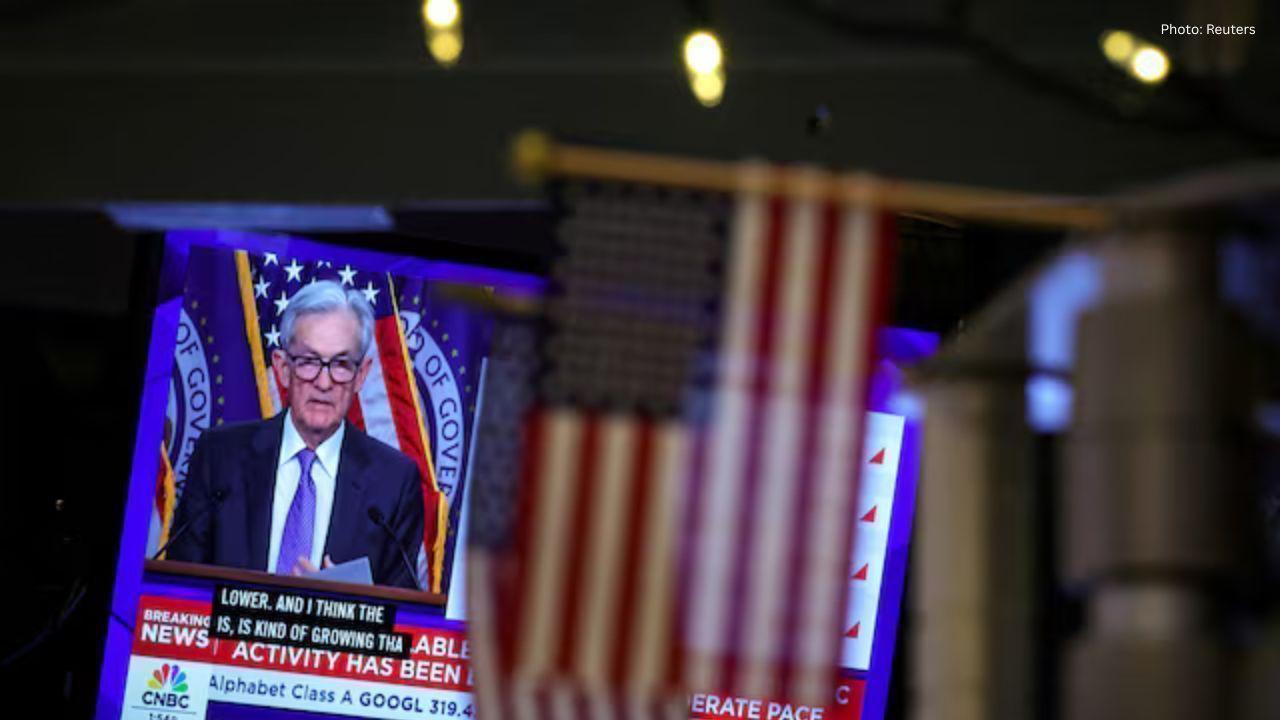You have not yet added any article to your bookmarks!

Join 10k+ people to get notified about new posts, news and tips.
Do not worry we don't spam!

Post by : Anis Farhan
The signing of the global plastic treaty by more than 150 nations has been hailed as one of the most significant environmental milestones in decades. For years, plastic pollution has been a mounting crisis, choking oceans, filling landfills, and contaminating food chains. This international pact represents a collective acknowledgment that the fight against pollution can no longer be postponed. The treaty’s commitments focus on reducing plastic production, encouraging recycling innovations, and holding industries accountable for waste management. In essence, it signals a global awakening that environmental sustainability cannot be achieved without tackling plastic head-on.
Plastic pollution has reached staggering levels in recent years. According to estimates, nearly 400 million tons of plastic are produced annually, and a significant portion of it ends up in the ocean. From microplastics entering marine food chains to plastic waste washing up on the world’s most remote shores, the scope of the crisis is both vast and alarming. Scientists warn that without immediate intervention, plastic pollution could triple by 2040. This urgency drove nations to put aside political differences and act collectively.
What makes this treaty unique is the breadth of participation. Over 150 countries, including both developed and developing economies, signed on to the agreement. While environmental pacts in the past have often seen unequal commitments, this treaty emphasizes fairness and shared responsibility. Developed nations with large plastic industries are expected to commit significant funding and technology to support recycling and waste management in less developed countries. This balance ensures the agreement doesn’t become another one-sided environmental pledge but a truly collaborative effort.
The treaty lays out a series of ambitious but actionable goals. Among them:
Reduction of Single-Use Plastics: Signatories have pledged to phase out unnecessary single-use plastics by a set timeline. Items like straws, cutlery, and plastic bags will be among the first to go.
Extended Producer Responsibility (EPR): Industries will now be held accountable for the plastic products they introduce into markets, ensuring better waste management and recycling.
Global Recycling Standards: Countries agreed to adopt uniform standards to enhance recycling rates and minimize cross-border pollution.
Innovation Funding: A financial mechanism will support research into biodegradable materials and circular economy models.
While governments have committed to the treaty, much of the real change will hinge on industries. Big manufacturers of plastics and consumer goods are under pressure to redesign products, cut unnecessary packaging, and invest in sustainable materials. Companies that adapt quickly could not only align with environmental goals but also secure a competitive edge in the global market. Critics, however, caution that without strict enforcement mechanisms, industries might find ways to delay or dilute commitments.
As monumental as the treaty is, challenges remain. Enforcement will be a complex task, especially in nations lacking infrastructure for effective recycling. Some countries may struggle with balancing economic development and environmental responsibilities. Moreover, vested interests in the petrochemical sector, which relies heavily on plastic production, could create resistance. The treaty’s success will depend on transparent monitoring, robust penalties for non-compliance, and sustained political will.
Perhaps the most immediate beneficiaries of the treaty will be marine ecosystems. Plastic waste in oceans has devastated biodiversity, killing countless marine animals and threatening coral reefs. By significantly cutting plastic inflows, the treaty offers hope for marine restoration. Cleaner oceans would not only benefit wildlife but also boost industries like fishing and tourism, which have suffered from the fallout of pollution.
Beyond its legal and technical frameworks, the treaty represents a shift in human consciousness. For decades, plastics were seen as symbols of convenience and modern living. Now, with overwhelming evidence of their environmental toll, societies are reimagining what sustainable living looks like. The agreement underscores the fact that global challenges require global solutions, and it may serve as a model for tackling other pressing issues like climate change.
The success of the treaty will also depend on public engagement. Citizens around the world will need to alter consumption habits, embrace reusable alternatives, and demand accountability from corporations. Public movements, especially youth-led climate and environmental campaigns, played a crucial role in pushing governments toward this agreement. Their continued pressure will remain a driving force in ensuring commitments translate into results.
If successfully implemented, the treaty could mark a turning point in the fight against environmental degradation. Future generations may look back on this moment as the beginning of a serious global effort to undo decades of neglect. By tackling plastic, nations are addressing not only pollution but also broader issues of sustainability, resource management, and human health.
This article is intended for informational and educational purposes only. The content reflects general developments surrounding the global plastic treaty and should not be considered official policy analysis. Readers are encouraged to consult official government statements and environmental organizations for more detailed insights.










Rashmika Mandanna, Vijay Deverakonda Set to Marry on Feb 26
Rashmika Mandanna and Vijay Deverakonda are reportedly set to marry on February 26, 2026, in a priva

FIFA Stands by 2026 World Cup Ticket Prices Despite Fan Criticism
FIFA defends the high ticket prices for the 2026 World Cup, introducing a $60 tier to make matches m

Trump Claims He Ended India-Pakistan War, Faces Strong Denial
Donald Trump says he brokered the ceasefire between India and Pakistan and resolved eight wars, but

Two Telangana Women Die in California Road Accident, Families Seek Help
Two Telangana women pursuing Master's in the US died in a tragic California crash. Families urge gov

Ranveer Singh’s Dhurandhar Roars Past ₹1100 Cr Worldwide
Ranveer Singh’s Dhurandhar stays unstoppable in week four, crossing ₹1100 crore globally and overtak

Asian Stocks Surge as Dollar Dips, Silver Hits $80 Amid Rate Cut Hopes
Asian markets rally to six-week highs while silver breaks $80, driven by Federal Reserve rate cut ex